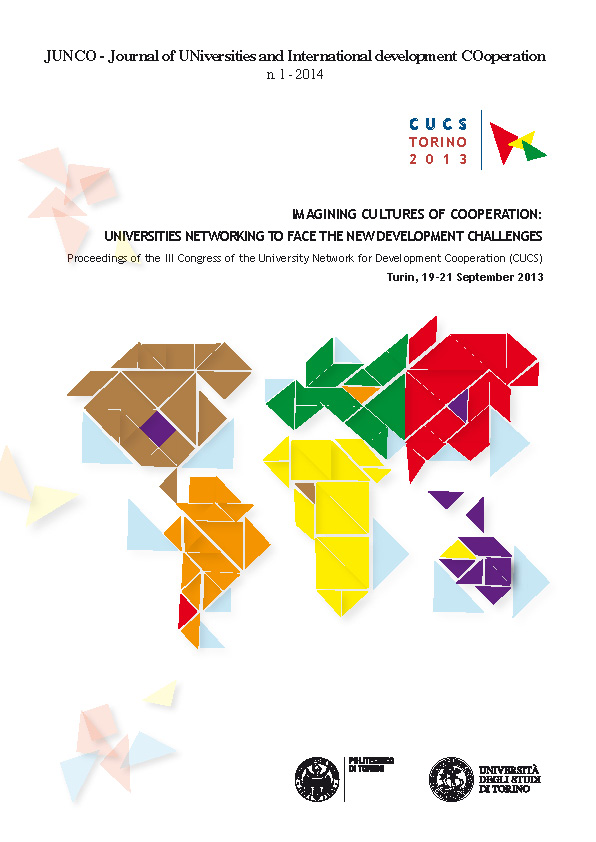PLANS AND PROJECTS “BEYOND THE BOUNDARIES”: SUBJECTS, KNOWLEDGE AND TOOLS
DOI:
https://doi.org/10.13135/2531-8772/521Abstract
This panel proposed a disciplinary look at theoretical reflections and case studies useful to think about the role of the universities according to the specific perspectives of urban planning courses and curricula within the decentralized cooperation initiatives around the world. The focus is based on changes in knowledge and skills “required to” and “produced by” the universities, within a large numbers of international experiences, where researchers are more “service providers” or a kind of “problem solver” (on demand) rather than subjects able to develop a supportive expert knowledge to do better in the cities and territories beyond the national boundaries. In fact, in a context of fewer resources available, a lot of Italian universities have been involved within international cooperation projects, but with a very low ability to reflect on practices and translate these experiences in common knowledge to better carry out our work as planners (reading, interpreting and regulation of urban and territorial transformations) in fragile contexts (or in developing or emerging regions as well). Thus, the panel has been configured as a space to present and discuss researches and studies in order to enhance and connect projects and theoretical reflections on:
- interventions in the international arena, in which specific experts skills were able to support processes and projects helpful to regain a more appropriate role in society and in the public debate;
- strengthening the framework of the knowledge and skills of the Italian schools of planning resulting from the comparison and/or contamination with international experience also to reshape the national formative offers.
Therefore, the aim is to verify the ability to deal with the internationalization of the practices and training that pass through the decentralized cooperation projects, by coming to terms with the continuous redefinition – within the practices – of the “disciplinary boundaries” and the professionalisms.



